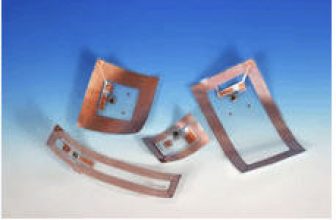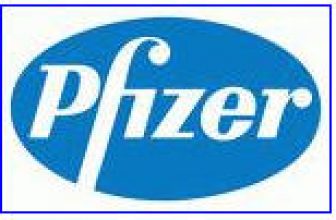
US Pfizer uses RFID to fight counterfeit “Viagra”
[ad_1]
Jan. 6., 2006—Any man, woman or child with an e-mail address has likely deleted scores of spam for discounted Viagra from questionable sources. Indeed, the erectile dysfunction drug is a major target for counterfeiters. But Pfizer, the pharmaceutical giant that manufactures the drug, has announced that it is using RFID to fight Viagra fakes.


The drugmaker has integrated a tag application and verification process for Viagra sold in the United States. As each bottle of Viagra moves down the packaging line, a label with an integrated Tagsys Flexible Module passive high-frequency (13.56 MHz) tag is applied. Then, an RFID interrogator encodes an EPC to each label. A second interrogator then verifies that the tag has been successfully encoded and can be read. The interrogator also reads the unique ID number that had been stored on the tag’s chip by the chip’s manufacturer, and both the tag’s chip ID and its EPC are recorded in a database. Pharmacists and wholesalers will use the tags to authenticate the drug.
Peggy Staver, Pfizer’s director of trade product integrity, notes that by the end of April, all untagged Viagra that US wholesalers and druggists currently have will have been dispensed to consumers and replaced by tagged bottles.
Pfizer sells five different stock-keeping units (SKUs) of Viagra, which total several million units each year in the United States. Staver says that Pfizer is also tagging the SKUs at the case and pallet level, using ultra-high frequency tags from Alien Technology, for authentication purposes.
Upon receiving the tagged bottles, wholesalers and pharmacies can verify the authenticity of each tag’s unique Electronic Product Code (EPC) by running a query over a secure Internet connection. For this, Pfizer worked with SupplyScape, a Woburn, Mass., company that makes pharmaceutical supply chain software, to deploy SupplyScape’s RxAuthentication Service, an online service provided by SupplyScape to which pharmacists and wholesalers must subscribe. After receiving the Viagra product, a pharmacist or wholesaler will use an RFID interrogator (one that can read Philips’ ICode air-interface protocol, which the Tagsys tags follow), linked to the RXauthentication Service over a secure Internet connection, to read the tag’s EPC and chip ID. The RXauthentication Service will check that Pfizer commissioned the EPC.
If the EPC was not issued by Pfizer, or if the chip ID does not match the one in Pfizer’s records for that EPC, the RXauthentication Service sends a notice, through the RXauthentication application, to the pharmacist or wholesaler, to quarantine the product and contact Pfizer’s Medical Information Services, a group of Pfizer employees who process suspected cases of counterfeit drugs and would likely ask the druggist or wholesaler to send the suspected bottle of Viagra back to Pfizer for investigation.
SupplyScape also developed a version of the RXauthentication application that allows wholesalers processing cases or pallets of the tagged Viagra to verify the EPCs encoded to the case and pallet tags.
Staver says that though Pfizer has made the decision to tag all bottles of Viagra distributed in the United States, rather than just a portion of them, the company still considers the EPC authentication application a technology pilot, since this will be the first time pharmacists and wholesalers will be using it. At present, only one wholesaler, HD Smith, is ready to begin using the tags for authentication, although a date has not yet been set for this, and no pharmacies have been identified. But Staver says she expects many pharmacies and wholesalers to begin participating in the pilot soon.
Pfizer says it is the first pharmaceutical company to put in place a comprehensive program of this type focused on EPC authentication as a means of deterring counterfeiting.
Retailer Wal-Mart, which is now requiring its top 300 suppliers to place UHF RFID tags on cases and pallets of select goods, is requiring that Pfizer, along with two dozen other drug providers, to place RFID tags on bulk containers of its Class 2 drugs (prescription painkillers and drugs that can be abused) shipped to one of the retailer’s pharmaceutical distribution centers in Bentonville, Ark. And the US Food and Drug Administration has endorsed the use of RFID as a means of authenticating and tracking individual containers or drugs throughout the supply chain, in order to create an electronic pedigree (e-pedigree) that shows each bottle’s chain of custody. But Pfizer says it and its distributors, wholesalers and other supply chain partners are not yet prepared to roll out an e-pedigree RFID system. “We’ve looked into track-and -trace applications, but haven’t done much with it yet,” says Staver. “This is something we’ll focus on in 2006.”
[ad_2]






